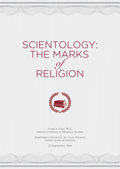I am currently self-employed as a writer, editor, lecturer and consultant in the fields of theology and religion. I also serve as Adjunct Professor in Religious Studies at Washington University, St. Louis, Missouri.
I hold a Bachelor of Arts degree in Philosophy (1962) from Quincy University, Quincy, Illinois; a Bachelor of Divinity degree (1966), magna cum laude, from Harvard Divinity School, Cambridge, Massachusetts; and a Ph.D. in Special Religious Studies (1981) from the University of St. Michael’s College, Toronto School of Theology, Toronto, Ontario. I have also done advanced study at Harvard University, the University of Heidelberg, Germany, and the University of Pennsylvania. At the University of Heidelberg, I was a Fulbright Fellow in Philosophy and Ancient Near Eastern Religions, 1966–67. At the University of Pennsylvania, I was a National Defense Foreign Language Fellow, Title VI, in Semitic languages, 1968–69.
Since 1962 I have devoted intense study to religious sectarian movements, ancient and modern. A portion of my doctoral studies was focused specifically on the rise of new religious movements in the United States and abroad since World War II. That study included the investigation of new religions in terms of their belief systems, lifestyles, use of religious language, leadership, motivation and sincerity, and the material conditions of their existence. At Washington University I regularly teach a course entitled The North American Religious Experience, which contains a section on new religious movements. Besides a scholarly interest in religions I have had long-standing personal experience with the religious life. From 1958 to 1964 I was a member of the Order of Friars Minor, popularly known as the Franciscans. During this period I lived under solemn vows of poverty, chastity, and obedience and, thus, experienced many of the disciplines typical of the religious life.
Prior to my present position, I taught at Maryville College, St. Louis, Missouri, 1980–81; St. Louis University, St. Louis, Missouri, 1977–79, where I was Graduate Director of the Masters Program in Religion and Education; the University of Toronto, Ontario, 1976–77, where I was Tutor in Comparative Religion; St. John’s College, Santa Fe, New Mexico, 1970–75, where I was Tutor in the Great Books Program; LaSalle College, Philadelphia, Pennsylvania, Summers 1969–73, where I was Lecturer in Biblical Studies and the Anthropology of Religion; Boston College, Boston, Massachusetts, 1967–68, where I was Lecturer in Biblical Studies; and Newton College of the Sacred Heart, Newton, Massachusetts, where I was Lecturer in Biblical Studies.
I am a member in good standing of the American Academy of Religion. I am a practicing Roman Catholic at All Saints Church, University City, Missouri.
Since 1968 I have lectured and written about various new religious movements which have arisen in the 19th and 20th centuries in North America and elsewhere. In my lecture courses Anthropology of Religion (LaSalle College), Comparative Religion (University of Toronto), The American Religious Experience (St. Louis University), and The North American Religious Experience (Washington University), I have dealt with such religious phenomena as the Great Awakening, Shakerism, Mormon, Seventh-day Adventism, Jehovah’s Witness, New Harmony, Oneida, Brook Farm, Unification, Scientology, Hare Krishna, and others. I have published several articles and been general editor of books on the topic of new religions. It is my policy not to testify about a living religious group unless I have long-term, firsthand knowledge of that group. I have testified on various aspects of the new religions before the U.S. Congress, the Ohio Legislature, the New York Assembly, the Illinois Legislature, and the Kansas Legislature. I have delivered lectures on the topic of the new religions at colleges, universities and conferences in the United States, Canada, Japan, the Republic of China, and Europe.
I have studied the Church of Scientology in depth since 1976. I have sufficiently sampled the vast literature of Scientology (its scriptures) to help form the opinions expressed herein. I have visited Scientology Churches in Toronto; St. Louis; Portland, Oregon; Clearwater, Florida; Los Angeles; and Paris, where I have familiarized myself with the day-to-day workings of the Church. I have also conducted numerous interviews with members of the Church of Scientology. I am also familiar with most of the literature written about Scientology, ranging from objective scholarship to journalistic accounts, both favorable and unfavorable.
As a comparative scholar of religion, I maintain that for a movement to be a religion and for a group to constitute a church, it needs to manifest three characteristics, or marks, which are discernible in religions around the world. Below, I define these three characteristics:
(a) First, a religion must possess a system of beliefs or doctrines which relate the believers to the ultimate meaning of life (God, the Supreme Being, the Inner Light, the Infinite, etc.).
(b) Secondly, the system of beliefs must issue into religious practices which can be divided into 1) norms for behavior (positive commands and negative prohibitions or taboos) and 2) rites and ceremonies, acts and other observances (sacraments, initiations, ordinations, sermons, prayers, funerals for the dead, marriages, meditation, purifications, scriptural study, blessings, etc.).
(c) Thirdly, the system of beliefs and practices must unite a body of believers or members so as to constitute an identifiable community which is either hierarchical or congregational in polity and which possesses a spiritual way of life in harmony with the ultimate meaning of life as perceived by the adherents.
Not all religions will emphasize each of these characteristics to the same degree or in the same manner, but all will possess them in a perceptible way.
On the basis of these three markers and of my research into the Church of Scientology, I can state without hesitation that the Church of Scientology constitutes a bona fide religion. It possesses all the essential marks of religions known around the world: (1) a well-defined belief system, (2) which issues into religious practices (positive and negative norms for behavior, religious rites and ceremonies, acts and observances), and (3) which sustain a body of believers in an identifiable religious community, distinguishable from other religious communities.





























